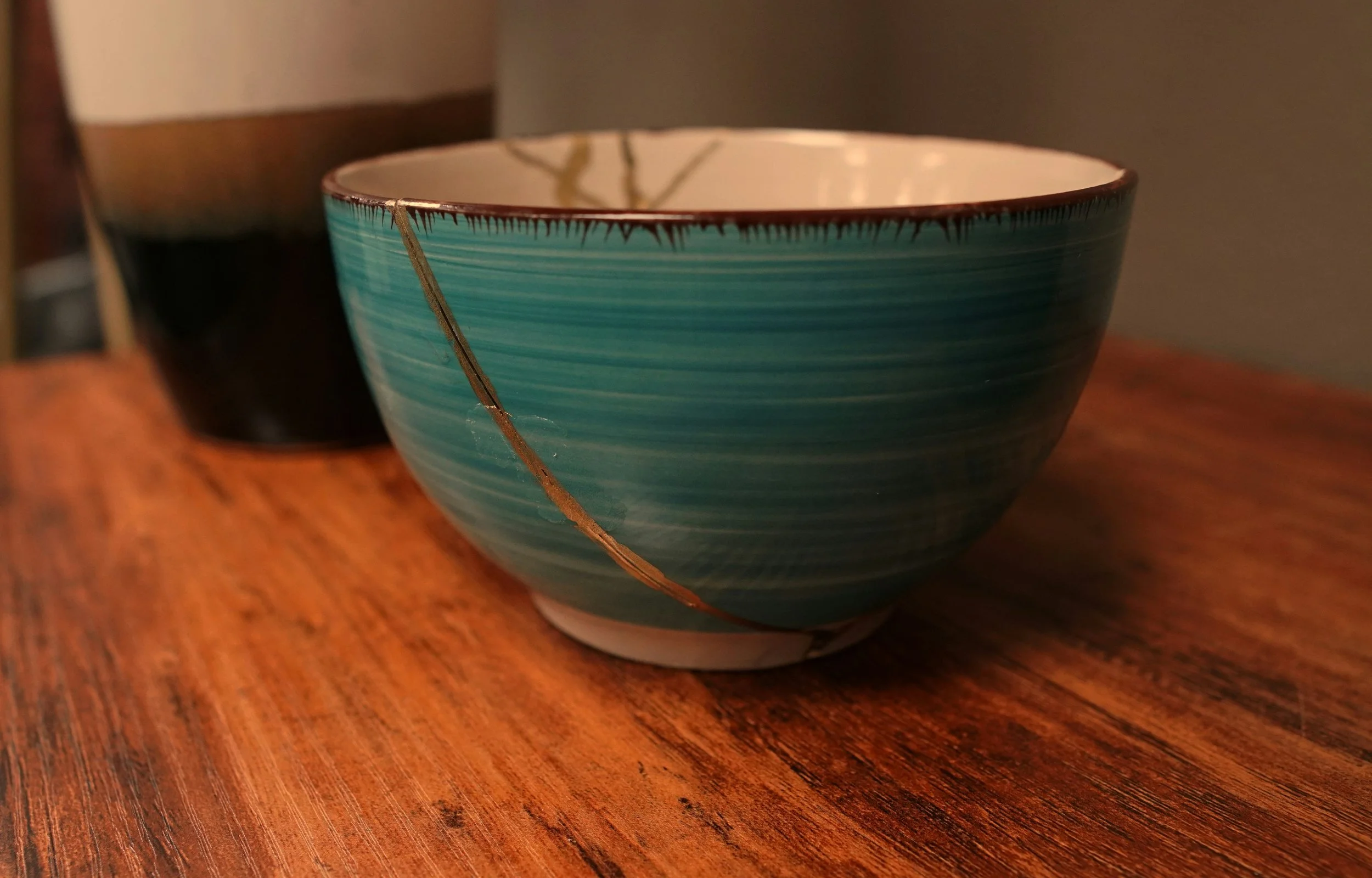Fixable
“The world breaks everyone, and afterward, many are strong at the broken places.”
Image Credit @mattperkins1
There are times in life when it seems nothing will ever be okay again—when things seem unfixable. I’ve even heard a few people say, “I’m unfixable.” Believing a situation or a person is “unfixable” is a direct route to depression and despair. So, how is it possible to navigate through such rough waters and not feel discombobulated, fractured, or worse?
The art of Kintsugi is a Japanese art form that involves repairing broken pottery with gold lacquer, making the pottery stronger and more beautiful. It’s a metaphor for life that celebrates imperfection, resilience, and beauty in the process of healing and transformation. What I like most about this is that it teaches us that one’s flaws, scars, and difficult experiences are not things to be hidden or shamed, but rather integral parts of one’s unique story and a source of strength.
But not every piece of pottery is fixable. It may be shattered into too many pieces. Not every life situation is fixable, meaning it cannot be corrected, repaired, restored, or rectified. Death is final—not fixable. A cancer diagnosis cannot be undone. Not every relationship is reconcilable. In the midst of adversity, it may seem there are too many pieces to put back together or too many cracks to function.
But there are times when we must continue even with the cracks in our pottery. Do you remember The Story of the Cracked Pot? Here is a brief version: A water carrier would walk from her home to the well each day, carrying two earthen pots that hung from a long pole across her shoulders. One pot was perfectly formed, and the other had a crack in its side. When she returned home each day, the cracked pot was only half full. The cracked pot created a story in its head about its unworthiness and the shame it felt, believing it was faulty. The water carrier said to the pot, “You’ve been looking down, comparing yourself to others, not noticing the beauty you’ve brought into my life.” The cracked pot was unaware that the water carrier had sprinkled seeds along the path, and the cracked pot watered them each day, resulting in beautiful wildflowers. Consequently, the pot’s flaw became the source of beauty and purpose.
I believe we all have flaws and that everyone faces adversity at some point. Is it possible to become “strong at the broken places?” Yes. It’s possible to learn from our adversity, to make different choices, to remember who we are. And our struggles give us a unique understanding and ability to help others. The Zulu Proverb that says,” The same boiling water that softens the potato hardens the egg,” reminds us that similar experiences impact each of us in different ways. So, your struggle will be different from mine.
We can’t fix or change every life event, but we can change how we respond. Fixing our broken places takes time. They eventually will empower us, allowing us to find meaning and purpose. It’s difficult, but it’s fixable.
(Fixable is inspired by and dedicated to a friend.)
Leave feedback for the author here. (Comments are not posted online.)

